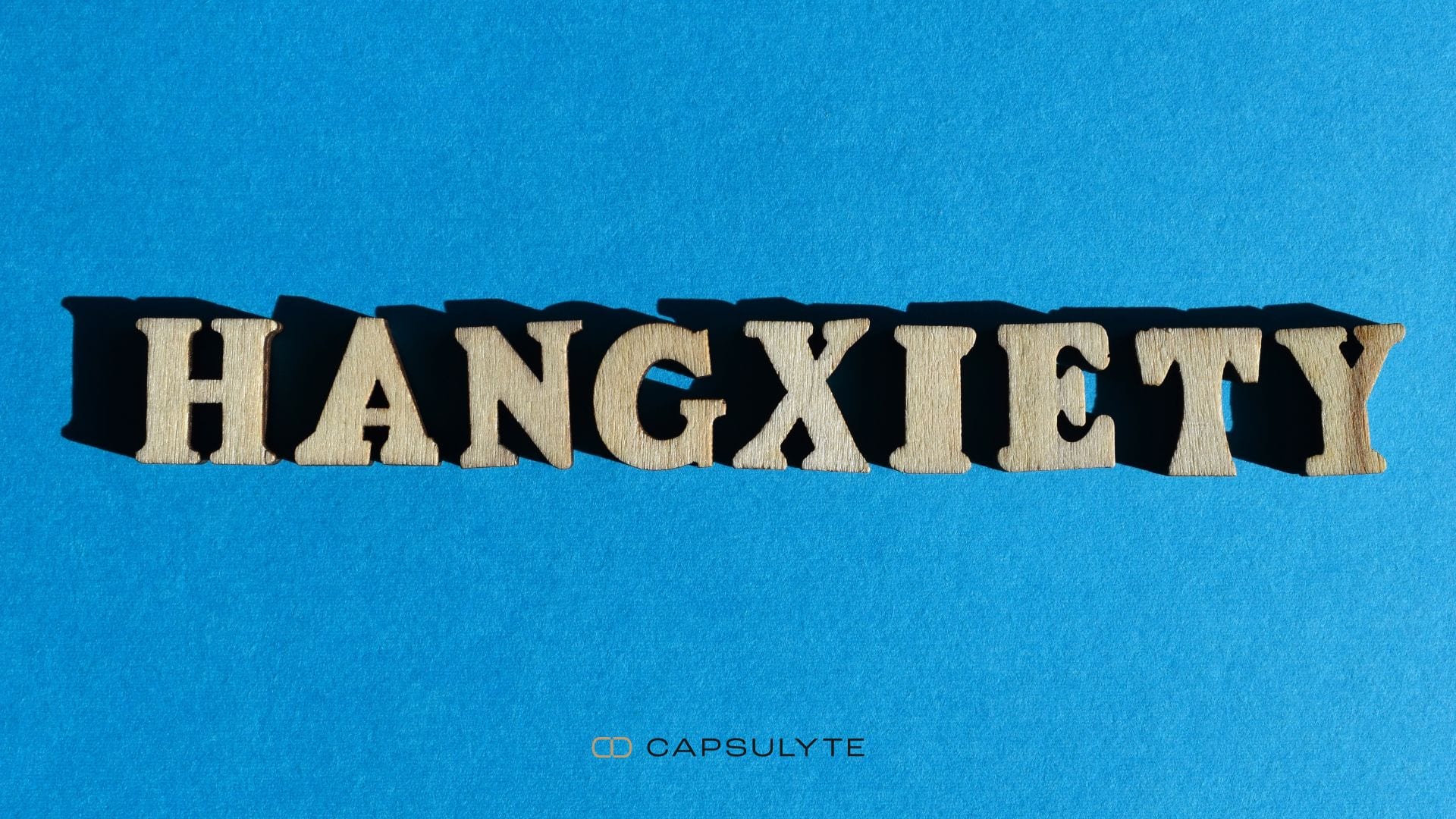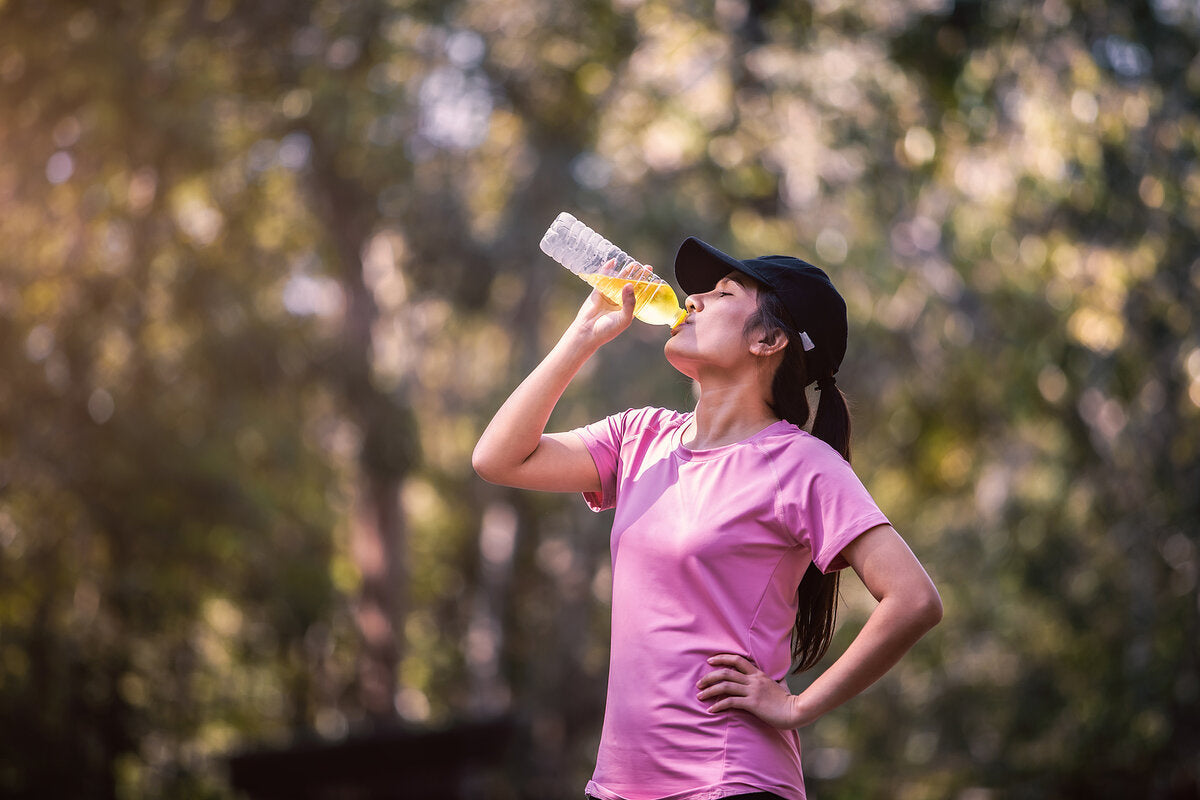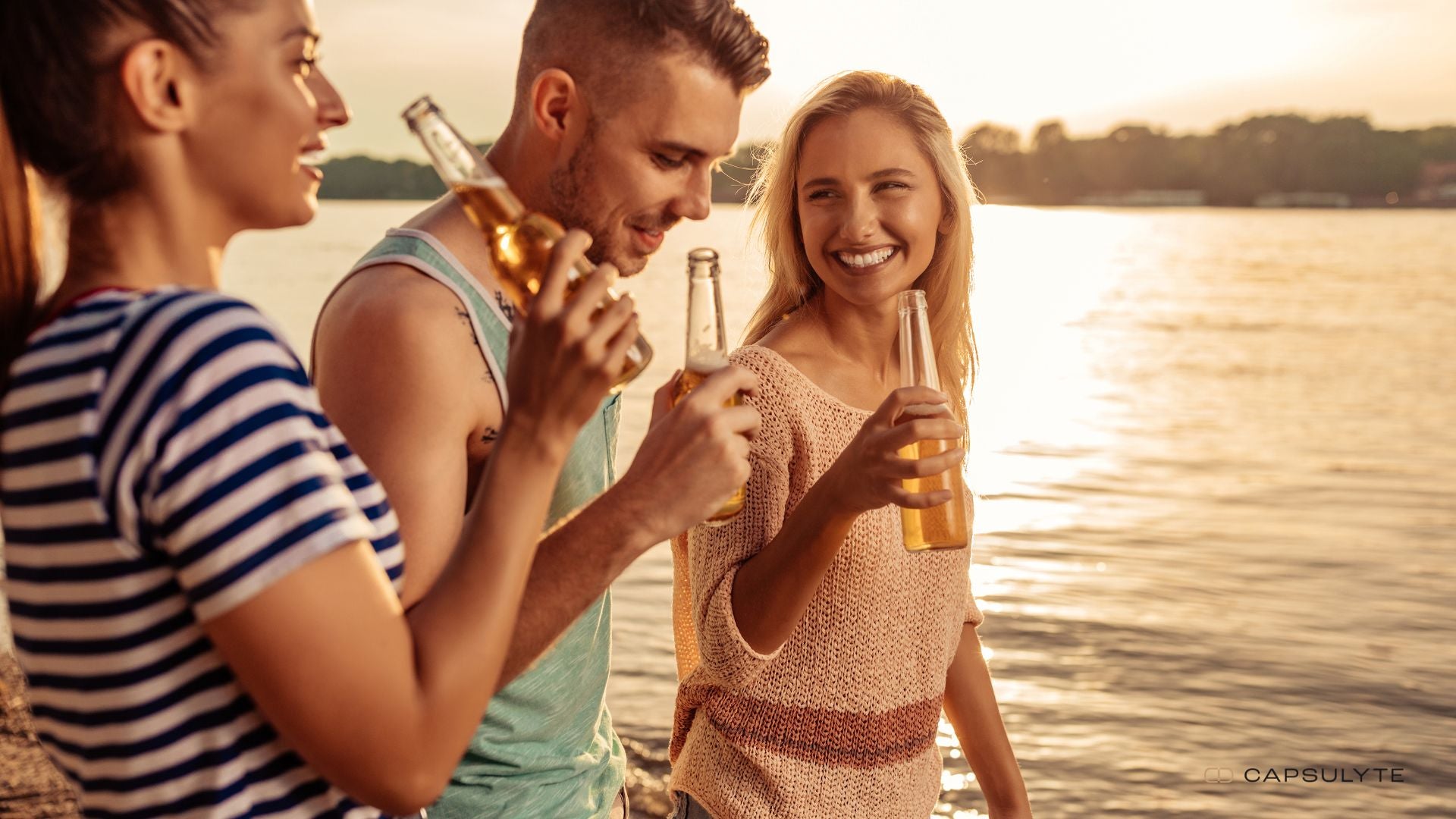
What, Exactly, Is Hangxiety—and How Can You Avoid It?
The usual physical symptoms of a hangover include an upset stomach, exhaustion, dizziness, and a pounding headache. If you’ve ever woken up after a night of drinking and noticed these sensations along with psychological symptoms like feelings of anxiety, you may have contemplated the question: could my hangover and my anxiety be connected?
The answer is yes—it’s very likely that they are. Physical and mental health are impossible to separate, so your post-drinking anxiety is likely to be another symptom of your hangover. In fact, anxiety after a night of heavy drinking is sometimes referred to by the informal term “hangxiety.” This is a common experience, too, with one survey finding that over one in five students aged 18 to 30 experience anxiety the day after drinking alcohol.
Read on and we’ll explain exactly what that term describes, the underlying physical causes of hangxiety, and the most effective strategies for staving off the anxiety that may follow a night of alcohol consumption.
What Is Hangxiety?
“Hangxiety” is a portmanteau of the words “hangover” and “anxiety,” and the term means exactly what it sounds like: feeling anxious after a night of drinking. If you suffer from hangxiety yourself, you may already know that the severity of the anxiety can vary. You may simply feel restless and a bit nervous, or on the more severe end of things, you may end up having debilitating panic attacks.
Physical and Psychological Symptoms of Hangxiety
Anxiety has the potential to cause both physical and mental symptoms. When you’re experiencing hangxiety, you may notice any of the following symptoms about 6 to 20 hours after you’ve stopped drinking:
- Restlessness
- Irritability
- Out-of-control worrying
- Insomnia
- Racing thoughts
- Increased heart rate
- Sweating
- Shaking
- Chest pain
- Nausea
- Digestive distress
The symptoms of hangxiety are pretty comparable to those of run-of-the-mill anxiety. But because these mental symptoms typically have (notoriously unpleasant!) hangover symptoms layered on top, the whole experience can be that much more challenging.

Why Does Hangxiety Happen?
Considering that so many people use alcohol to reduce their social anxiety, it may be surprising to learn that one of the side effects of alcohol is delayed-onset anxiety. But when you learn exactly how this chemical impacts your body and brain, it becomes less surprising that alcohol would have these unpleasant psychological effects.
Alcohol’s Impact on Brain Chemistry
When you first drink alcohol, it stimulates your brain’s gamma aminobutyric acid (GABA) receptors, which reduces anxiety. This is why, when you’re in the midst of drinking, you might feel especially relaxed and free from worry. The more you drink, the more these receptors are stimulated, and the less anxiety you’re likely to feel.
However, as your body metabolizes the alcohol, the percentage of alcohol in your bloodstream begins to drop. This means the alcohol is no longer exerting its effect on your GABA receptors, which can lead to a rebound effect: increased anxiety. Your brain is attempting to return to its normal balance after you’ve suppressed the brain circuitry that creates feelings of anxiety.
In other words, it’s not just that you’re returning to a mental baseline when the alcohol is no longer in your system. Instead, the problem is that you’re actually experiencing more anxiety than before you started drinking. (This can even prompt people to drink more in an attempt to fight the anxiety, which can lead to unhealthy/excessive drinking habits, and even a vicious cycle of alcohol abuse in the worst cases.)

Other Contributors to Hangxiety
There are a number of other factors that tend to cause anxiety the day after drinking alcohol:
- Sleep deprivation: Although it makes you feel sleepy, alcohol disrupts our normal REM sleep cycles and can reduce sleep quality, leading to sleep deprivation. Getting poor sleep can increase feelings of anxiety.
- Memory loss: Alcohol can disrupt or even completely halt our brains’ ability to form memories. If you can’t remember what happened the night before, it’s understandable that you would be anxious about what you might have said or done.
- Dehydration: Because alcohol is a diuretic, drinking a lot can cause dehydration, which is a major factor in hangover symptoms as a whole. Dehydration can contribute to anxiety, too.

How to Avoid Hangxiety
If you experience anxiety after consuming alcohol, you don’t have to stop drinking entirely to prevent hangxiety. Instead, you can follow these practical tips to reduce your chances of suffering from anxiety the next day:
Before Drinking
Take Capsulyte’s PREGAME supplement, formulated by internal medicine physician Dr. Dan Nguyen, MD, MBA to support your body and brain in preparation for drinking alcohol using an evidence-based combo of ingredients:
- N-acetyl cysteine (NAC): A form of the amino acid cysteine that is a building block of glutathione, a powerful antioxidant that your body produces itself and that may protect against the damaging effects of alcohol. In early studies, NAC shows promising effects when it comes to reducing post-alcohol symptoms.
- Dihydromyricetin (DHM): An antioxidant and potent anti-inflammatory that supports brain function by potentially reducing stress and improving cognition.
- Clovinol®: Another antioxidant and anti-inflammatory, this all-natural compound comes from clove buds and can minimize unpleasant feelings after drinking by an estimated 55 percent.
- Siliphos®: This compound derived from milk thistle may protect the liver from alcohol-related damage, such as cirrhosis due to alcoholic liver disease.
PREGAME effectively prepares your body and brain for the stress of alcohol consumption with its powerful combination of antioxidants, anti-inflammatories, and other protective compounds.
While Drinking
The best way to avoid hangover-related anxiety is simply not to get a hangover, and drinking in moderation is the most effective way to prevent hangovers. Some advice for limiting alcohol consumption: keep track of how many drinks you’re consuming, drink lots of water or other hydrating beverages in addition to alcohol, do your best to slow down your rate of drinking, and eat a hearty and balanced meal before you drink (never drink alcohol on an empty stomach).
After Drinking
When you wake up feeling ill after you’ve been drinking—or are simply worried that you might, in spite of your efforts to prepare and drink in moderation—take a high-quality electrolyte supplement like Capsulyte’s HYDRATION.
Dr. Dan Nguyen created HYDRATION for the express purpose of combating dehydration after drinking alcohol. He incorporated the following important vitamins and minerals to maximize your body’s ability to bounce back:
- Hydra 4G™: This blend of sodium, potassium, magnesium, and calcium contains the optimal ratios of each mineral to facilitate hydration.
- B vitamins: This class of vitamins may help to regulate energy metabolism, neurological function, and red blood cell formation.
- Liposomal Pureway C™: Formulated for maximum bioavailability, this form of vitamin C may improve immune system function and neutralize free radicals that can contribute to chronic illness.
- Zinc: Another mineral that is necessary for normal immune function.
Set yourself up for success by providing your body with the antioxidants, anti-inflammatories, and other potent compounds it needs to fend off post-drinking anxiety and other unpleasant physical/mental effects. To learn more about how Capsulyte can help your body and brain cope with the effects of alcohol, visit the Capsulyte blog.


